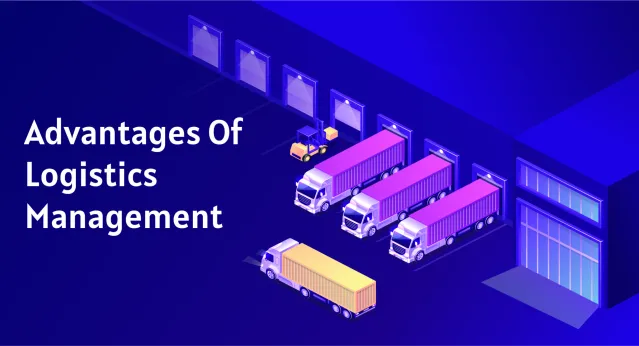
The supply chain, which includes product development, sourcing, production, and dispatching of goods and services, includes logistics management as a critical component. The entire management process depends on properly coordinating the flow and storage of goods, services, and related information. To effectively manage the logistics chain, the supply chain must be developed and operated from the point of origin to consumer consumption.
To enhance supply chain performance, proper planning, sourcing, manufacturing, delivering, receiving, and enabling activities are needed. The entire supply chain benefits from increased operational fluency thanks to a logistics management software. The organisation can save costs and improve customer service by using timely and accurate logistical data.
There are multiple usage benefits of logistics management software. The logistics market is expanding rapidly, and it is predicted that from 2016 to 2022, it will increase at a CAGR of 3.48%, reaching a market size of over $12,256 billion globally. The supply chain system is aligned and automated with the aid of logistics management software, which is integrated into the business process. Your logistical needs and demands will be streamlined as a result, from inventory management through warehouse operations to shipment. The supply chain will operate without a hitch if the appropriate software is implemented. The top ten benefits of adopting logistics management software are listed in this article.
- Cost Reduction
The decrease in costs is one of the main benefits of employing logistics management software. The business can choose the best shipping services with the aid of efficient software. The business can choose the most effective and cost-effective mode of transportation by analysing and contrasting the services.
The business can develop a cost-effective strategy thanks to good shipment planning. Customers can receive their services or goods promptly and for a reasonable price.
- Order Management
The logistics software’s order management component streamlines and automates the order fulfilment process. More than merely controlling or receiving orders is involved in the entire operation. The administrators of this platform can set up inventory databases, gather information, process orders, activate fulfilment systems, and streamline returns to this fulfilment system. A good order management system shortens the order-to-cash cycle and increases suppliers’ ability to process orders quickly.
- Inventory Management
In order to keep track of product availability and to maximise efficiency, inventory management must be done effectively. A logistics management software with an inventory management platform aids in maintaining the items, controlling the command over sales, and regulating the control over order fulfilment. The software’s inventory solution streamlines the monitoring and management procedure. It gathers all the data in one location for simple processing and data retrieval.
- Transport Management
The logistics software’s warehouse management feature aids in streamlining the operation of distribution centres or warehouses. Additionally, it makes it easier to plan, organise, staff, direct, and regulate how the sector uses its resources. A good warehouse management system enables both inside and outdoor storage or movement of commodities. Effective warehousing practises guarantee financial gain for both businesses and clients.
Software for managing transit of commodities between locations of dissemination and consumption is provided by transport management logistics. Planning, carrying out, and optimising the actual movement of commodities is made easier for enterprises. Additionally, it guarantees that the shipment complies with regulations and has the necessary documents.
- Logistics Analytics
The logistics software’s logistics analytics component aids in the accurate assessment of the effectiveness of logistics operations. Understanding functional metrics, like as delivery history, is necessary to accomplish this. Business organisations can allocate resources for the best growth using the optimization, simulation, and analytics software package.
- Risk Management
An essential component of the logistics sector is risk management. The organisation may define strategic goals that guarantee the security of the management and movement of the goods and services thanks to the risk management platform of the logistics software. Additionally, it handles any malfunctions, freight accidents, or insurance claims.
- Scalability
Long-term benefit may come from a logistics software that can be expanded to match the industry’s expanding demands. If the industry grows larger or more numerous, the software should be able to handle the added workload.
- Customer Support
Software for logistics should have the appropriate tools for customer assistance. You may then centralise all of your customer support requirements thanks to this. Customer service can be accelerated, expedited, and improved through automation, chatbots, and virtual assistants.
- Access To Real-Time Freight Data And Analysis
You will have access to crucial data management and freight accounting information thanks to logistics software. The analysing process is made simpler by easy access to data.
To Conclude:
Utilizing a single platform, logistics management software unifies and streamlines inventory, order, and shipping administration for numerous warehouses and clients. This contributes to more efficient fieldwork management, more sales, improved customer assistance, and improved financial administration services.




